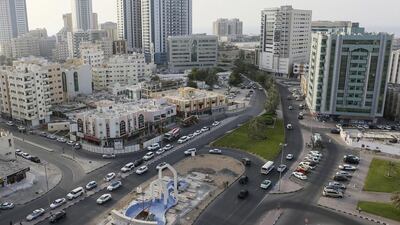AJMAN // A plan to install hundreds of CCTV cameras across the smallest emirate was welcomed by residents who, despite feeling safe, said it would make any would-be criminals think twice.
The 450 cameras, which will be connected to the police control room, will be installed in malls, streets, car parks, hotels and residential and commercial buildings, said Brig Sheikh Sultan bin Abdullah Al Nuaimi, Commander-in-Chief of Ajman Police.
The project, scheduled for completion by February, will involve 150 cameras along the emirate’s roads by June in the first phase, while hotels and malls will be fitted with CCTV by September.
Residential and commercial buildings will be included in the third phase.
“They [hotels] have cameras, but we will check if they are suitable in giving us a clear images or need to be changed,” said Brig Al Nuaimi.
He said that the cameras would help officers search for offenders, monitor for signs of trouble and reduce car accidents.
Salwa Bastawesy, 52, who has lived in Ajman for 15 years, said having the cameras around the emirate would make her feel safer. She did not believe that her privacy would be compromised.
“There are cameras in the corridor of my building but they are not working. When these new ones are activated we will feel safer,” said the Egyptian teacher.
“It is better if they also put cameras in the elevators,”
In January last year, the Dubai government announced plans to install cameras at ATM machines, while a proposal in February by the Roads and Transport Authority to require three cameras in Dubai taxis was met by mixed public response.
Some people said they would welcome the move, in part to ensure taxi drivers were concentrating on the road. Others had concerns that it would be an invasion of passengers’ privacy.
Aleen Mohammed, who lives in Al Mwaihat, said the cameras would make criminals think twice about committing a crime.
“Even though there is safety and security in the whole of the UAE, this will cut crime,” said the 27-year-old Palestinian.
“These cameras will make us feel safer, especially when we travel because thieves can break into villas even though there are plenty of police patrols around .”
roueiti@thenational.ae

